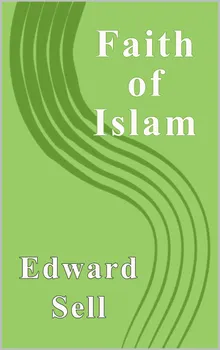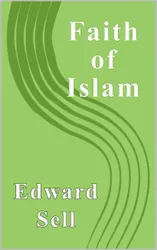It is necessary to enter into some explanation as regards the contents of this work. It does not fall in with its plan to enter into an account either of the life of Muhammad or of the wide and rapid spread of the system founded by him. The first has been done by able writers in England, France and Germany. I could add nothing new to this portion of the subject, nor throw new light upon it. The political growth of Muslim nations has also been set forth in various ways.
It seems to me that the more important study at this time is that of the religious system which has grown out of the Prophet's teaching, and of its effect upon the individual and the community. What the Church in her missionary enterprise has to deal with, what European Governments in the political world have to do with is Islám as it is, and as it now influences those who rule and those who are ruled under it.
I have, therefore, tried to show from authentic sources, and from a practical knowledge of it, what the Faith of Islám really is, and how it influences men and nations in the present day. I think that recent Fatvás delivered by the 'Ulamá in Constantinople show how firmly a Muslim State is bound in the fetters of an unchangeable Law, whilst the present practice of orthodox Muslims all the world over is a constant carrying out of the precepts given in the Qurán and the Sunnat, and an illustration of the principles I have shown to belong to Islám. On this subject it is not too much to say that there is, except amongst Oriental scholars, much misconception.
Again, much that is written on Islám is written either in ignorant prejudice, or from an ideal standpoint. To understand it aright, one should know its literature and live amongst its people. I have tried faithfully to prove every statement I have made; and if, now and again, I have quoted European authors, it is only by way of illustration. I rest my case entirely upon Musalmán authorities themselves. Still more, I have ascertained from living witnesses that the principles I have tried to show as existing in Islám, are really at work now and are as potent as at any previous period.
I have thus traced up from the very foundations the rise and development of the system, seeking wherever possible to link the past with the present. In order not to interfere with this unity of plan, I have had to leave many subjects untouched, such as those connected with the civil law, with slavery, divorce, jihád or religious wars, &c. A good digest of Muhammadan Law[1] will give all necessary information on these points. The basis of the Law which determines these questions is what I have described in my first chapter. Ijtihád, for example, rules quite as effectually in a question of domestic economy or political jurisprudence as on points of dogma. It was not, therefore, necessary for me to go into details on these points.
When I have drawn any conclusion from data which Muhammadan literature, and the present practice of Muslims have afforded me, I have striven to give what seems to me a just and right one. Still, I gladly take this opportunity of stating that I have found many Muslims better than their creed, men with whom it is a pleasure to associate, and whom I respect for many virtues and esteem as friends. I judge the system, not any individual in it.

